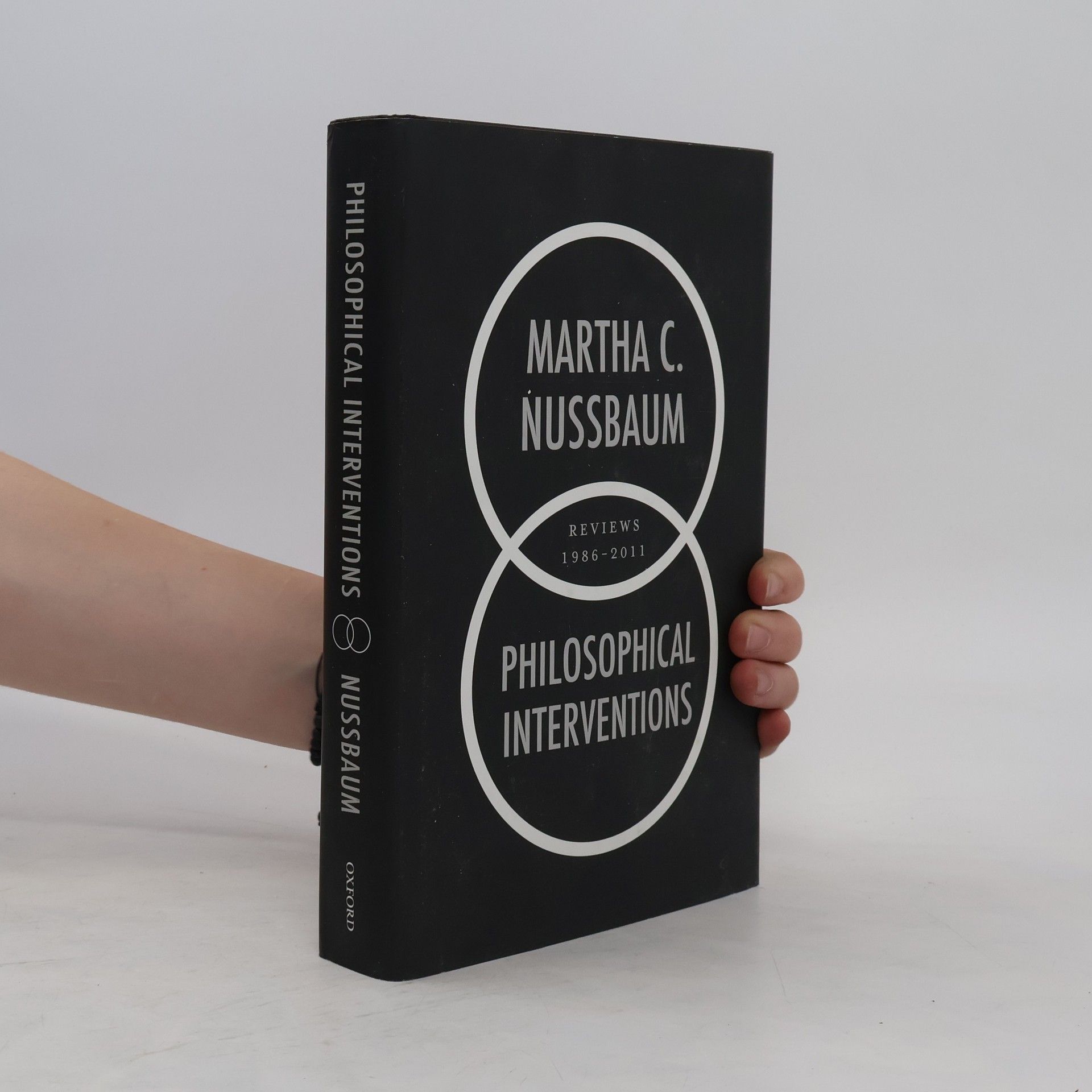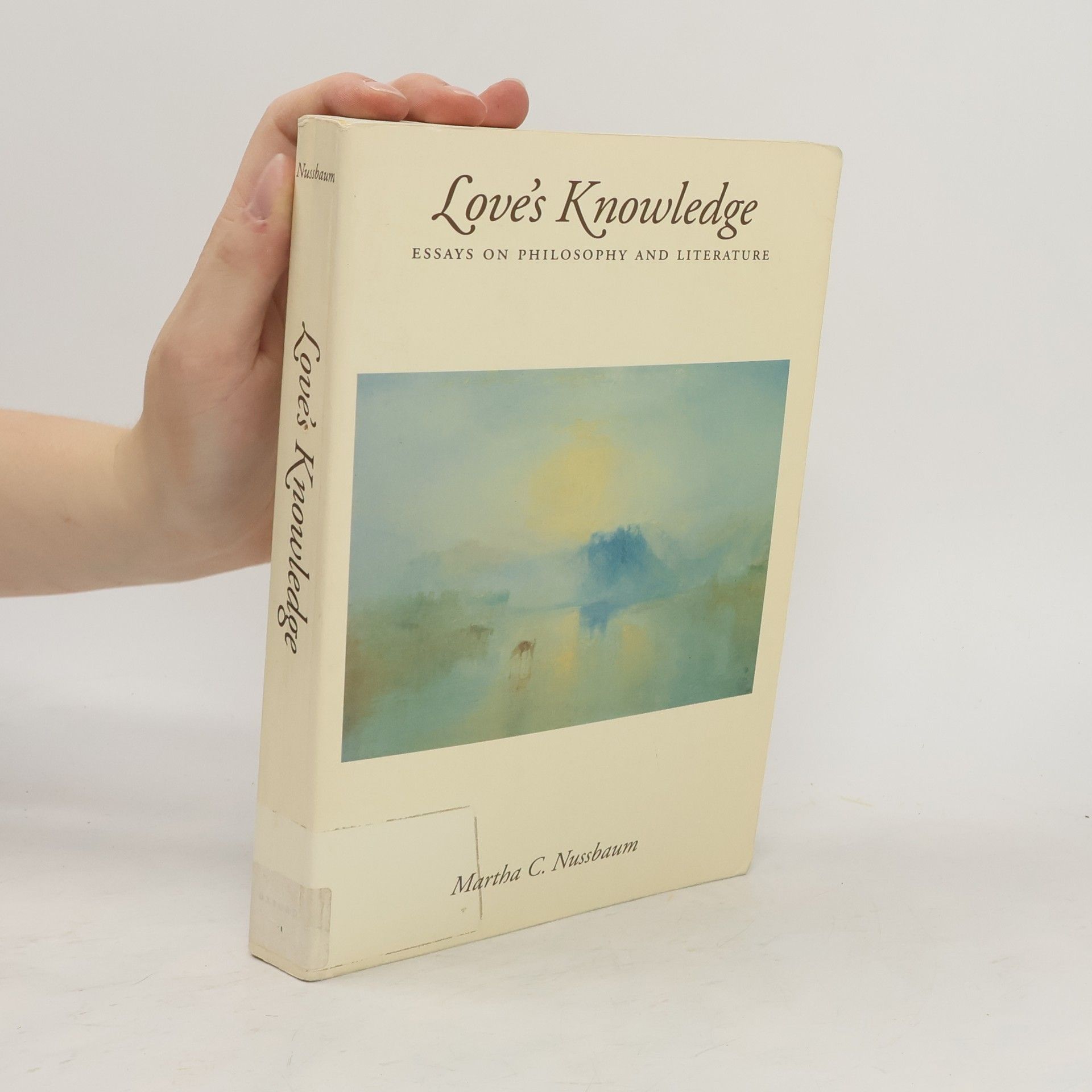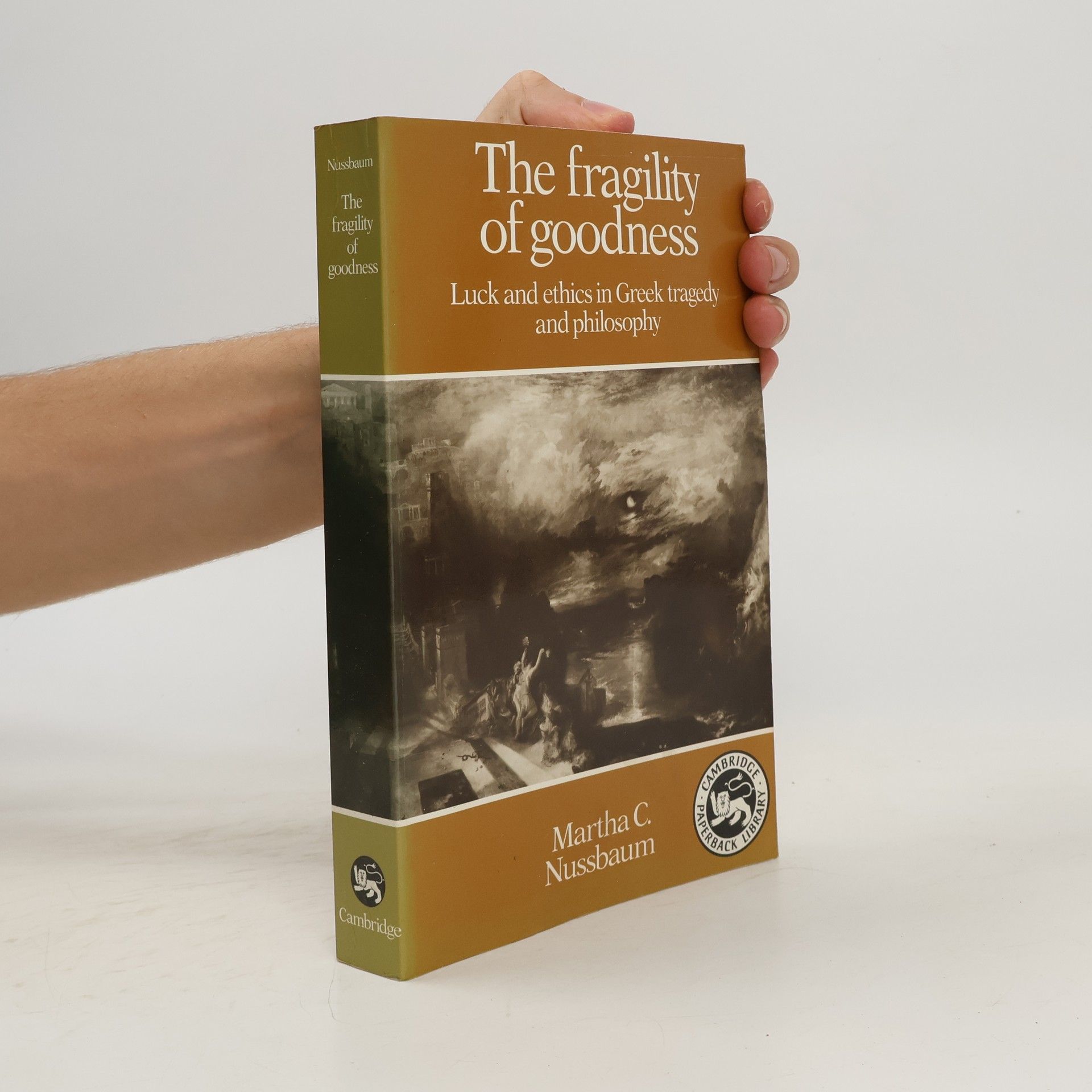Ten years after its original publication, Roman Homosexuality remains the definitive statement of this interesting but often misunderstood aspect of Roman culture. Learned yet accessible, the book has reached both students and general readers with an interest in ancient sexuality. This second edition features a new foreword by Martha Nussbaum, a completely rewritten introduction that takes account of new developments in the field, a rewritten and expanded appendix on ancient images of sexuality, and an updated bibliography.
Martha Craven Nussbaum Libri
Martha C. Nussbaum è professoressa presso l'Università di Chicago, affiliata alla Facoltà di Giurisprudenza e al Dipartimento di Filosofia. Il suo lavoro si addentra profondamente nell'etica, nella filosofia politica e nella psicologia, esplorando spesso come gli individui possano condurre vite fiorenti all'interno delle loro società. Nussbaum è rinomata per la sua capacità di collegare idee filosofiche antiche con questioni contemporanee, enfatizzando l'empatia, la compassione e lo sviluppo delle capacità umane come fondamento per una società giusta. Il suo approccio è caratterizzato da un'argomentazione rigorosa e dall'impegno nell'applicare concetti filosofici alle sfide del mondo reale.






The Therapy of Desire
- 584pagine
- 21 ore di lettura
The Epicureans, Skeptics, and Stoics practiced philosophy not as a detached intellectual discipline but as a worldly art of grappling with issues of daily and urgent human significance. In this classic work, Martha Nussbaum maintains that these Hellenistic schools have been unjustly neglected in recent philosophic accounts of what the classical tradition has to offer. By examining texts of philosophers such as Epicurus, Lucretius, and Seneca, she recovers a valuable source for current moral and political thought and encourages us to reconsider philosophical argument as a technique through which to improve lives. Written for general readers and specialists, The Therapy of Desire addresses compelling issues ranging from the psychology of human passion through rhetoric to the role of philosophy in public and private life.
This volume collects the notable published book reviews of Martha C. Nussbaum, an acclaimed philosopher who is also a professor of law and a public intellectual. Her academic work focuses on questions of moral and political philosophy and on the nature of the emotions. But over the past 25 years she has also written many book reviews for a general public, in periodicals such as The New Republic and The New York Review of Books. Dating from 1986 to the present, these essays engage, constructively and also critically, with authors like Roger Scruton, Allan Bloom, Charles Taylor, Judith Butler, Richard Posner, Catharine MacKinnon, Susan Moller Okin, and other prominent intellectuals of our time. Throughout, her views defy ideological predictability, heralding valuable work from little-known sources, deftly criticizing where criticism is due, and generally providing a compelling picture of how philosophy in the Socratic tradition can engage with broad social concerns. For this volume, Nussbaum provides an intriguing introduction that explains her selection and provides her view of the role of the public philosopher.
Political Emotions
- 480pagine
- 17 ore di lettura
Martha Nussbaum asks: How can we sustain a decent society that aspires to justice and inspires sacrifice for the common good? Amid negative emotions endemic even to good societies, public emotions rooted in love--intense attachments outside our control--can foster commitment to shared goals and keep at bay the forces of disgust and envy.
Exploring the intersection of emotions and human goals, the author utilizes insights from philosophy, psychology, anthropology, music, and literature. By examining how emotions influence our understanding of significant aspirations, the book offers a comprehensive analysis of their impact on decision-making and values. Through this multidisciplinary approach, it reveals the profound ways emotions shape our lives and the pursuit of meaningful objectives.
Justice for Animals
- 400pagine
- 14 ore di lettura
From renowned philosopher Martha C. Nussbaum, a revolutionary exploration of animal rights, ethics, and law.
This volume brings together Nussbaum's published papers on the relationship between literature and philosophy, especially moral philosophy. The papers, many of them previously inaccessible to non-specialist readers, deal with such fundamental issues as the relationship between style and content in the exploration of ethical issues; the nature of ethical attention and ethical knowledge and their relationship to written forms and styles; and the role of the emotions in deliberation and self-knowledge. Nussbaum investigates and defends a conception of ethical understanding which involves emotional as well as intellectual activity, and which gives a certain type of priority to the perception of particular people and situations rather than to abstract rules. She argues that this ethical conception cannot be completely and appropriately stated without turning to forms of writing usually considered literary rather than philosophical. It is consequently necessary to broaden our conception of moral philosophy in order to include these forms. Featuring two new essays and revised versions of several previously published essays, this collection attempts to articulate the relationship, within such a broader ethical inquiry, between literary and more abstractly theoretical elements.
Exploring the influence of shame and disgust on societal norms and legal frameworks, this thought-provoking work critiques how these emotions shape our views on issues like sex and crime. The author, a leading philosopher, challenges the appropriateness of basing laws on social conventions, questioning the ethical implications of requiring felons to publicly disclose their pasts. Through eloquent arguments, the book delves into the intersection of morality, law, and human behavior, urging readers to reconsider the foundations of our legal system.
This book is a study of ancient Greek views about 'moral luck'. It examines the fundamental ethical problem that many of the valued constituents of a well-lived life are vulnerable to factors outside a person's control, and asks how this affects our appraisal of persons and their lives. The Greeks made a profound contribution to these questions, yet neither the problems nor the Greek views of them have received the attention they deserve. This book thus recovers a central dimension of Greek thought and addresses major issues in contemporary ethical theory. One of its most original aspects is its interelated treatment of both literary and philosophical texts. In a close analysis of three tragedies, and works by Plato and Aristotle, the author argues that we cannot understand the thought of the philosophers without also investigating its relation to the literary works; and that the literary works, in virtue of their form as well as their content, make a distinctive contribution to ethical thought. --From publisher's description
Anger is widely regarded as a natural response to injustice, often seen as essential for justice and self-respect. However, Martha C. Nussbaum challenges this perspective, arguing that anger is conceptually confused and normatively harmful. She posits that anger assumes the suffering of the wrongdoer can repair what was damaged and reflects a troubling focus on status and humiliation. Through her exploration of anger in various contexts—intimate relationships, daily interactions, the workplace, the criminal justice system, and social movements—Nussbaum reveals that the underlying ideas of anger are both immature and detrimental. She questions whether forgiveness is the best way to move beyond anger, analyzing its different interpretations in Jewish, Christian, and secular moral frameworks. While some forms of forgiveness are ethically promising, others can reinforce retribution by demanding contrition and humiliation. Ultimately, Nussbaum advocates for a spirit of generosity, often supported by impartial legal institutions, as the most effective response to injury. Her insightful analysis reframes our understanding of anger and forgiveness, offering a fresh perspective on both personal and political realms.


